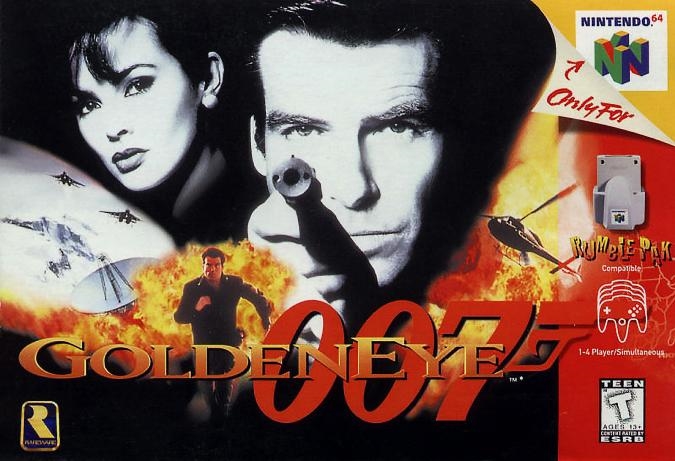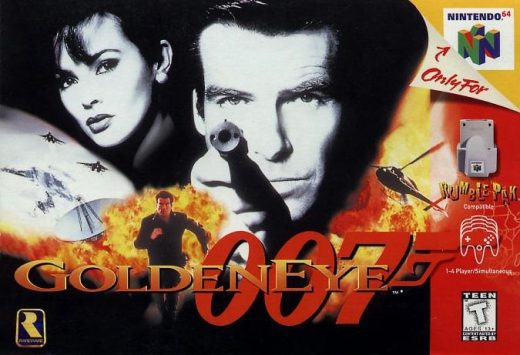‘GoldenEra’ is a loving, if muddled, tribute to ‘GoldenEye 007’
‘GoldenEra’ is a loving, if muddled, tribute to ‘GoldenEye 007’
Covering the whole breadth of a video game’s influence is harder than it looks.


GoldenEye 007 for the Nintendo 64 is one of those games that will forever be held up as a milestone in the art. It wasn’t the first FPS on a console, or even the first FPS on the Nintendo 64, but it was unquestionably the best. And the most influential. GoldenEye 007 inspired the development of Half-Life and reportedly prompted the creation of the Medal of Honor series. It also holds very fond memories for everyone of a certain age who would hunch over someone’s 14-inch bedroom TV to play the local deathmatch for hours at a time.
Its success, and legacy, means it’s one of a handful of titles that would merit a feature-length making-of documentary. Drew Roller’s GoldenEra tries to encompass everything about the title, from its genesis as a small project at Rare’s rural farmland campus to the monster it became. In one way, the story of GoldenEye 007 mirrors that of Citizen Kane – created by neophytes so unaware of what would be achieved, they went on to break new ground in the process. And while many of the team would go on to make some pretty good games, nothing would come close to their debut in terms of impact and acclaim.
GoldenEra has been able to get many of the original team on the record, including David Doak, Karl Hilton, Brett Jones, Duncan Botwood and Steve Ellis. Their testimony is supplemented by a number of journalists and talking heads from across the games industry that helps bulk out the gaps. After all, Rare (then working in partnership with Nintendo, now owned by Microsoft) has always been more secretive about what it does than other studios. And so there do seem to be missing chunks of testimony that would have helped paint a richer, fuller picture here.
And if there’s a problem with the film, it’s that it’s a lot harder to make the drama compelling given that software design is relatively staid. Not to mention that the impact a game has has to be measured in different ways to, for instance, a movie or album. After all, you can fairly clearly spot the examples of pop phenomenons, since they often swallow the culture around them for weeks or months at a time. Our relationship with video games is often a lot more personal, beyond the usual visual cues of people queuing up to buy the title on release day.
This is, perhaps, where GoldenEra starts to feel a little saggy, since it tries to cover the breadth of GoldenEye 007’s fallout without much depth. This means that the back third essentially becomes a series of five minute segments covering Perfect Dark, Free Radical Design and Timesplitters, GoldenEye fan films, the modding community that have kept the title alive and what happened to Rare. There’s even a little detail about the proposed remake of GoldenEye 007, as well as plenty of snark handed out to the subsequent James Bond games that are all, universally, not very good. But as much as you or I might take issue with the scattershot approach, it’s one way of folding in all of the many and varied ends to this particular story.
GoldenEra is available to rent or buy today on a number of on-demand platforms, including Google Play, Prime Video, Apple TV and Sky in the UK. There is no news, yet, on when the film will be made available in the US.
(18)


